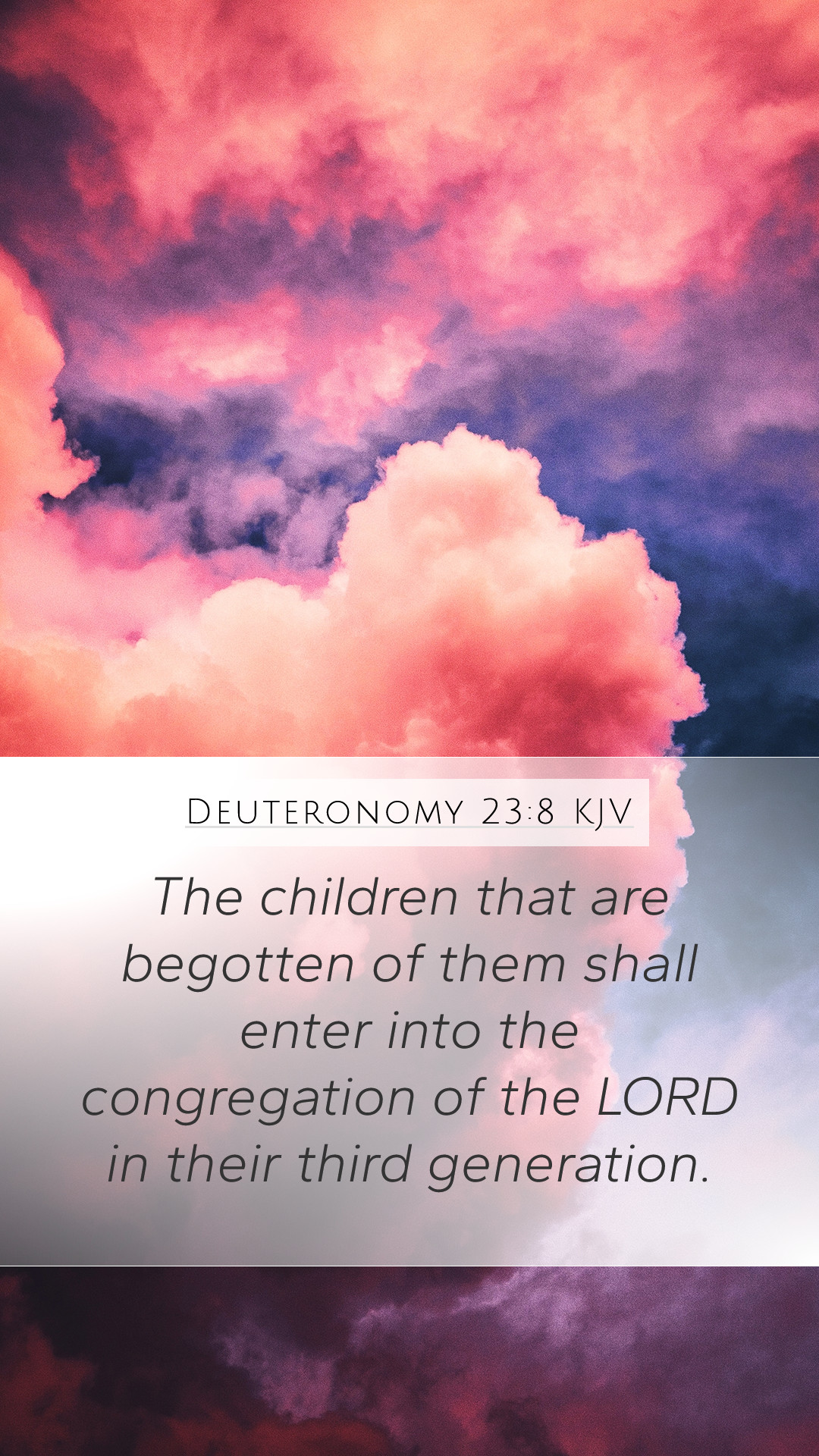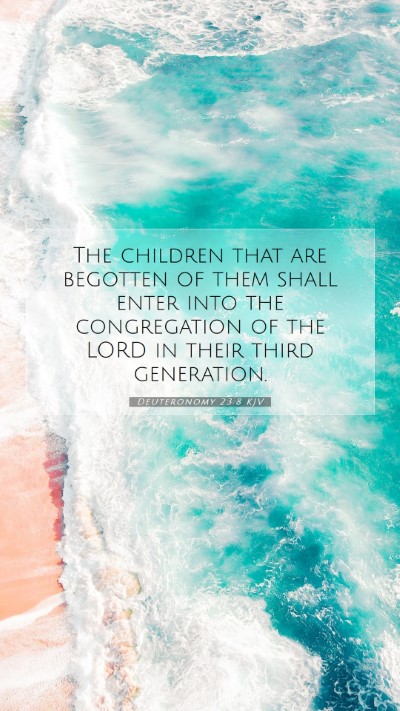Understanding Deuteronomy 23:8 - Bible Verse Meaning
The verse Deuteronomy 23:8 states:
"The children that are begotten of them shall enter into the congregation of the Lord in their third generation."
This verse highlights the importance of lineage and the inclusion of certain individuals in the assembly of God's people. Below is a combined analysis of this verse using insights from public domain commentaries by Matthew Henry, Albert Barnes, and Adam Clarke.
Contextual Overview
Deuteronomy addresses various laws and regulations for the people of Israel as they prepare to enter the Promised Land. This particular verse concerns the descendants of certain groups and their rights to participate in the community of Israel.
Historical and Cultural Context
-
Matthew Henry: Henry emphasizes the historical context, noting that this legislation reflects God's covenant with Israel and the importance of maintaining a pure and holy community.
-
Albert Barnes: Barnes provides insight into the customs of the time, explaining that the exclusion of certain groups was meant to preserve the spiritual integrity of Israel.
-
Adam Clarke: Clarke discusses the ongoing conflict with neighboring nations and the reasoning behind such restrictions, advocating for a careful approach to community membership.
Interpretation of the Verse
This verse can be understood through several key points:
-
Lineage and Entry: The mention of the "third generation" indicates a process of inclusion over time, suggesting that initial disallowance can lead to eventual acceptance, promoting the idea of redemption and growth within the community.
-
Inclusivity Over Generations: The offspring of those previously excluded can find a place among the congregation, symbolizing God's mercy and willingness to forgive and welcome back those who seek Him.
-
Community Standards: It reflects a balance between maintaining community standards and allowing for new members through the generations, integrating them into the fabric of worship and societal governance.
Theological Significance
Deuteronomy 23:8 holds profound theological implications:
-
God's Justice and Mercy: The verse illustrates the nature of God as both just and merciful, maintaining standards while offering pathways to redemption.
-
God's Covenant Community: It reflects the concept of God's chosen people, who are called to live according to divine principles while recognizing the potential for restoration.
-
Future Generations: The emphasis on "third generation" can be seen as a representation of hope and continuity in faith from grandparents to grandchildren.
Application for Today's Believers
Modern readers can draw several lessons from this verse:
-
Embracing Inclusiveness: Use this verse as a reminder to embrace those who seek to join the community of faith, understanding that everyone has a journey of faith that may lead them to God.
-
Patience in Growth: The idea of progression through generations encourages patience in spiritual growth, recognizing that God works in individuals over time.
-
Focus on Legacy: It provokes thought about the impact one's faith leaves on future generations. What legacy are we building for those who come after us?
Cross References
Related Bible verses that provide further insight include:
- Ezra 10:2 - Addresses the inclusion of those who had been excluded.
- Nehemiah 10:28-29 - Calls on the community to uphold the covenant and its implications.
- Romans 15:7 - Emphasizes accepting one another as Christ accepted us, pointing toward unity within diversity.
Conclusion
Understanding Deuteronomy 23:8 requires a careful consideration of its legal, historical, and theological context. The insights provided by public domain commentaries enrich our study, offering a comprehensive view of this verse's significance in both ancient Israel and today’s faith communities. This mid-level Biblical exegesis highlights key themes relevant for contemporary believers as they navigate their own faith journeys.


